, 2 - 3 February 2023
What's new in Brussels? Recent developments in European policies and programmes
Theme
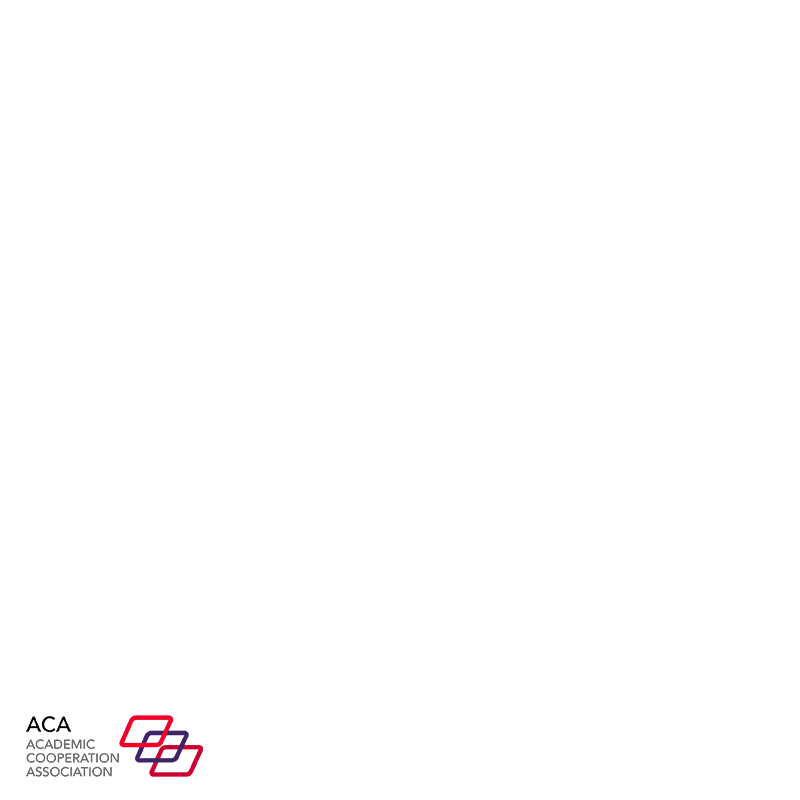 After two years online, ACA is ready to welcome you again in-person to Brussels for our flagship seminar What’s new in Brussels? Recent developments in European policies and programmes! Don’t miss out on connecting with colleagues, a chance to lend your voice and raise questions to important policy-makers, institutional representatives and stakeholders in higher education, and to return home inspired and ready for a new year of Erasmus+ projects.
After two years online, ACA is ready to welcome you again in-person to Brussels for our flagship seminar What’s new in Brussels? Recent developments in European policies and programmes! Don’t miss out on connecting with colleagues, a chance to lend your voice and raise questions to important policy-makers, institutional representatives and stakeholders in higher education, and to return home inspired and ready for a new year of Erasmus+ projects.
Explore the programme and speaker biographies!
After two consecutive years of virtual What’s new in Brussels? seminars, we are eager to update you with some changes we’ve made to make 2023 the most comprehensive and inspiring seminar yet. Over the last two decades we have focused this seminar on the novelties of the Erasmus+ programme, but this year we have revised our vision for bringing the novelties to life and to frame the Erasmus+ programme within a global perspective. The 2023 What’s new in Brussels? agenda offers thematic orientations to each panel, horizontally integrating perspectives on both policy and practice, separately and together.
This year’s What’s new in Brussels? seminar goes beyond sharing what exists in the Erasmus+ programme, to offer cross-cutting, globally-oriented discussions of the synergies within the programme, and allows more comprehensive discussions based on concrete and impactful projects. Besides exploring the Team Europe approach on global cooperation and the institutional transformation caused by European Universities initiative, What’s new in Brussels? is paired with meaningful opportunities to share expertise and insight on timely topics.
What’s new about What’s new in Brussels? 2023:
- Two types of panels: policy-oriented, allowing space for more policy-focused discussions, followed by practical panels showcasing real-life solutions to broader policy agendas.
- Looking for more connection and inspiration? Join the parallel sessions! On Day 1, the parallel sessions integrate KA1 and KA2 by region, to offer inspiration for your current or prospective projects involving the Western Balkans, Sub-Saharan Africa & South Mediterranean, or Eastern partnership. On Day 2, you can join a parallel session with other institutional leaders and practitioners on horizontal priorities in the Erasmus+, such as Inclusion and Diversity, Digital Transformation, or Environment and fight against climate change.
- Network – network – network! The programme provides ample time for you to connect with colleagues during the coffee breaks, complemented by a welcome reception at the end of Day 1.
- Looming uncertainties: We’ve dedicated a special panel to discuss how to deal with rising costs, inflation and evolving funding at the national and regional level.
- What would What’s new in Brussels? be without mentioning the European Universities Initiative? The closing panel will wrap-up the event by discussing the role of different types of institutional-level collaboration (including the European Universities alliances) in generating institutional transformation(s), based on existing evidence on impact, and on the experiences of panelists, from their multiple perspectives.
Unable to attend in-person? When registering, you may simply purchase access to the livestream of the four panels (Day 1 and Day 2 inclusive) for a reduced fee. This does not include access to the recordings of - or participation in - the parallel sessions. Explore the registration platform for more information about the programme!
Pictures from the seminar:
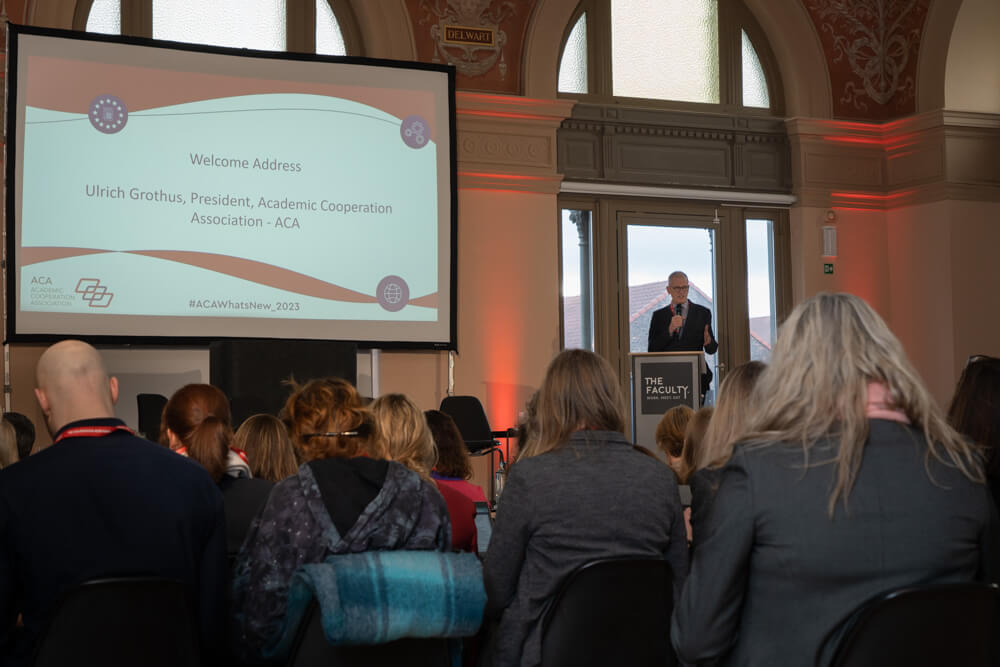
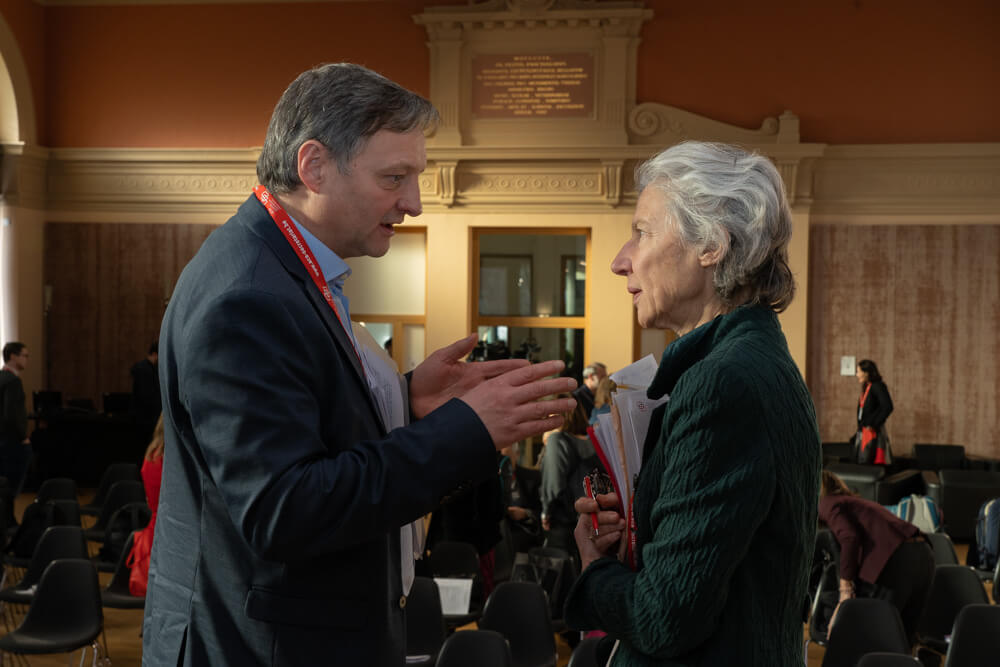
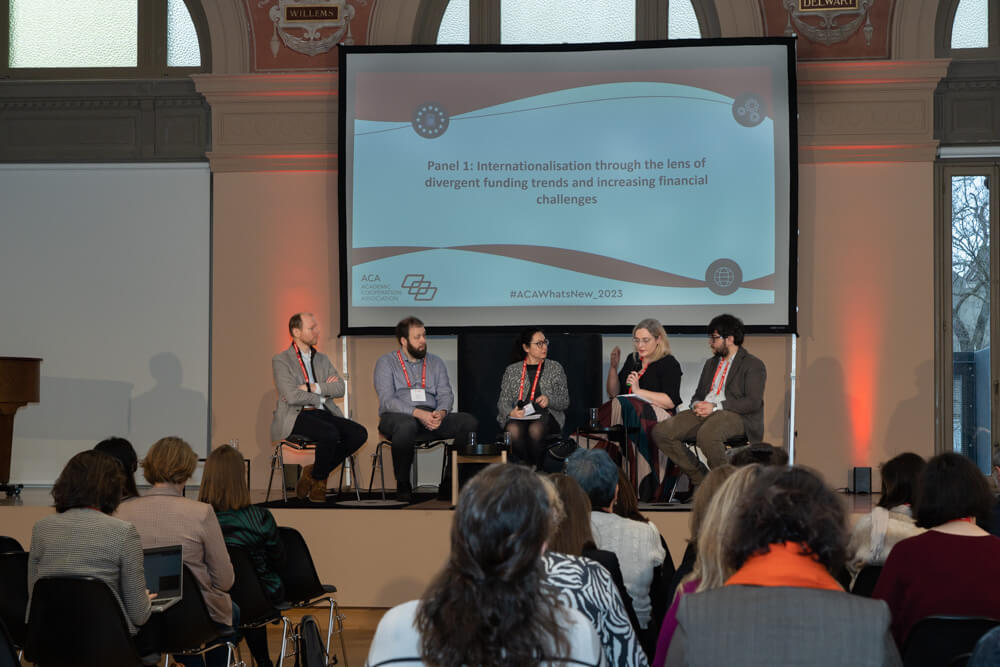
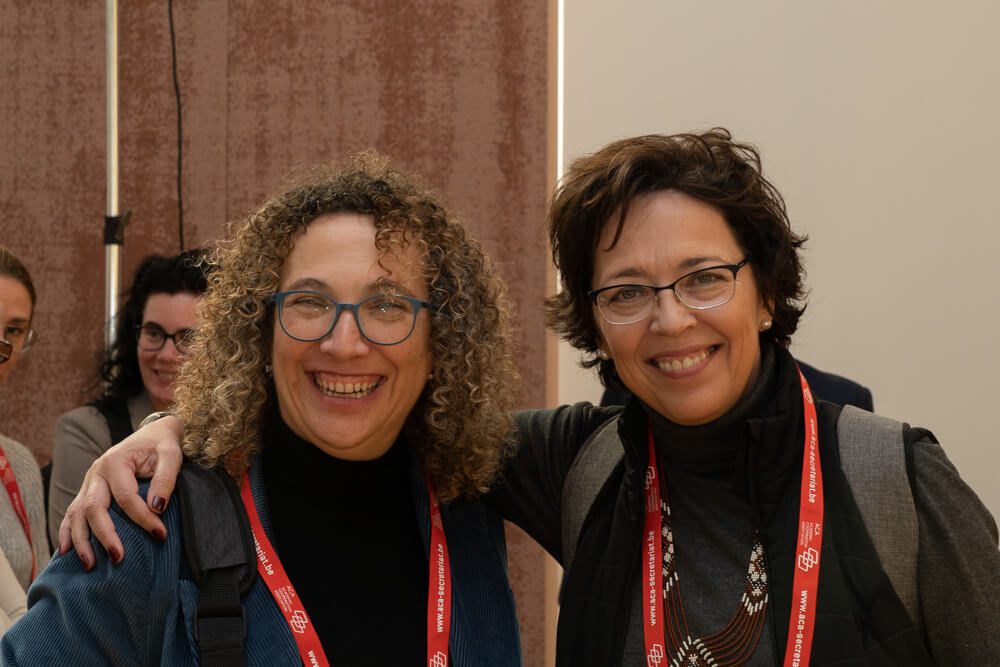
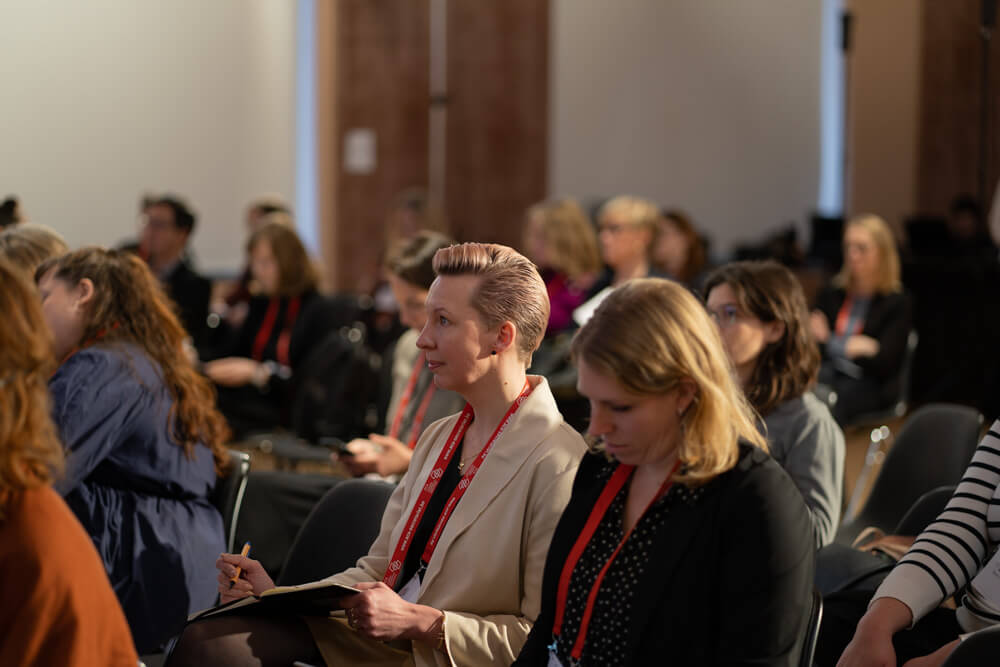 .
. 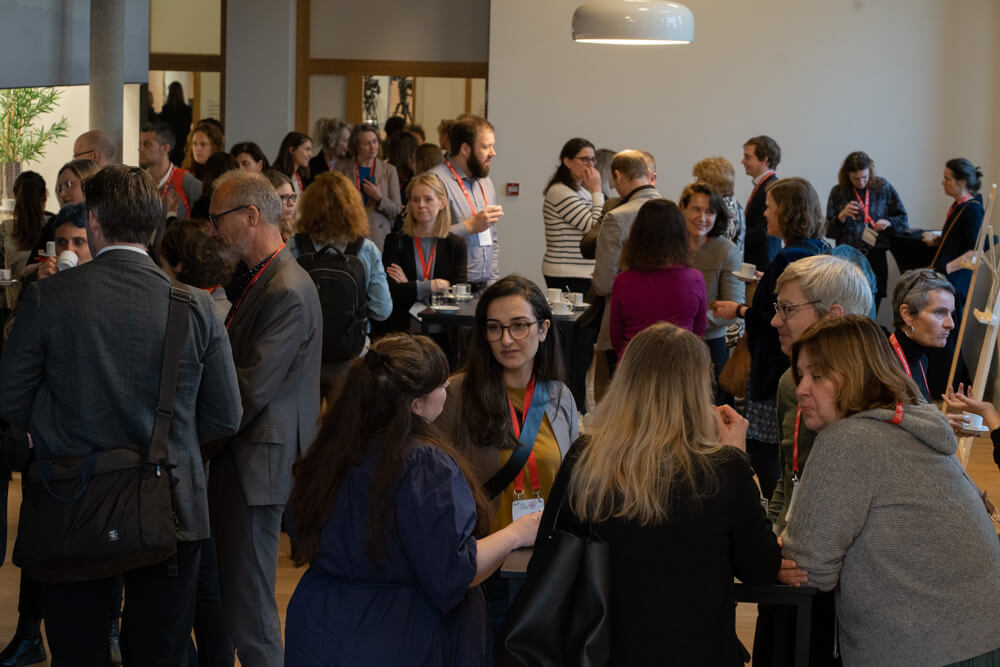
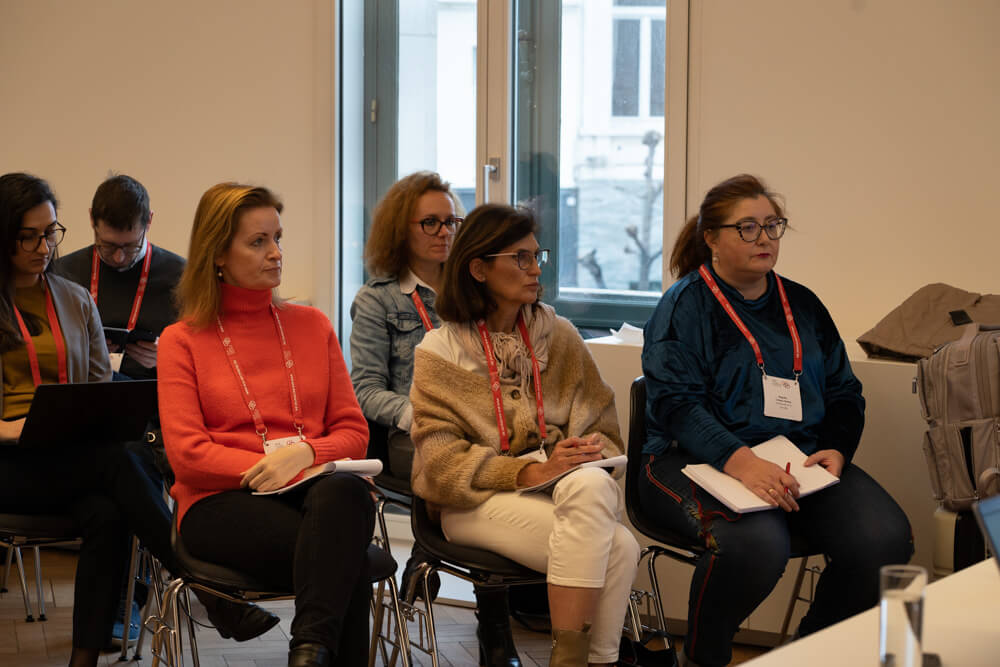 .
. 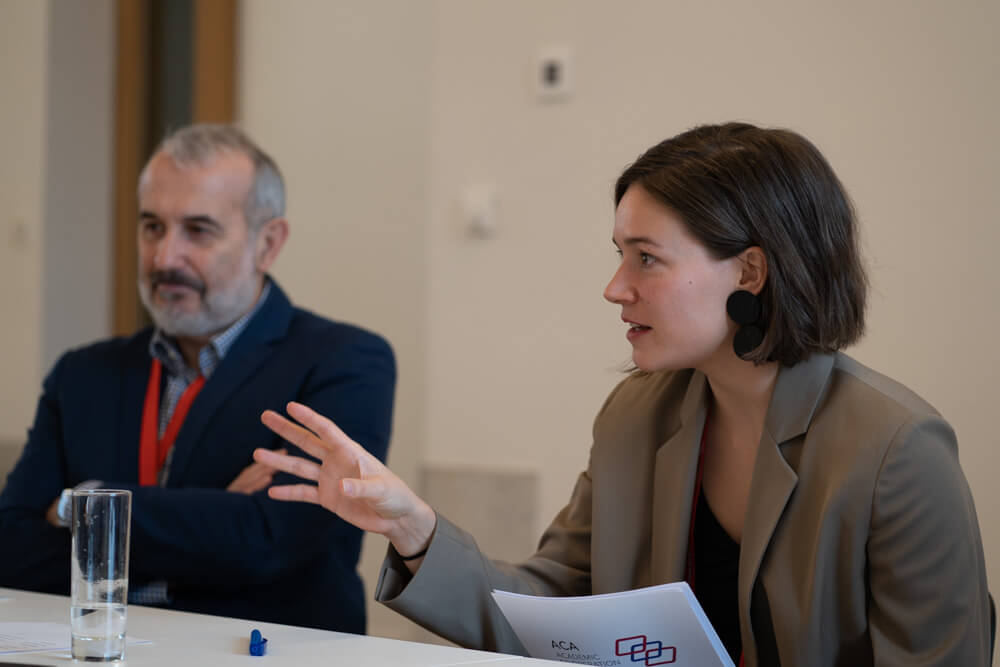
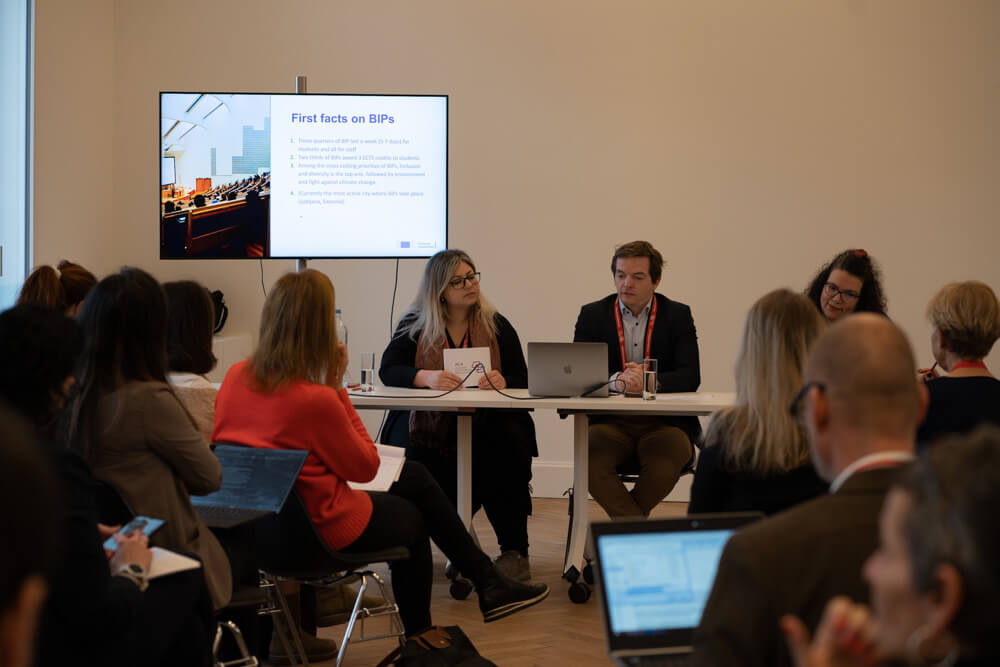 .
. 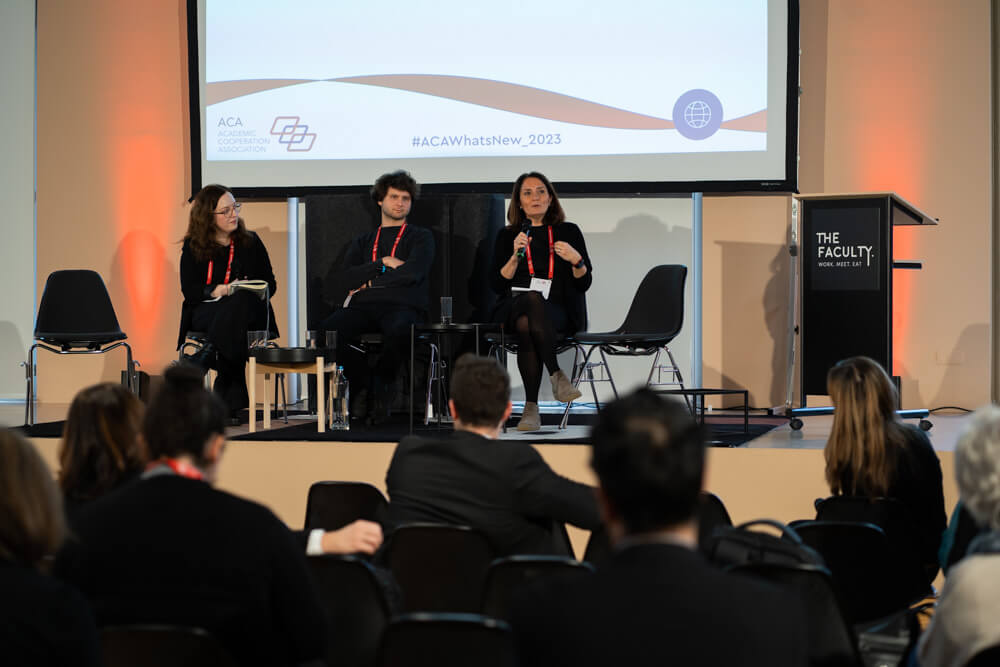 .
.
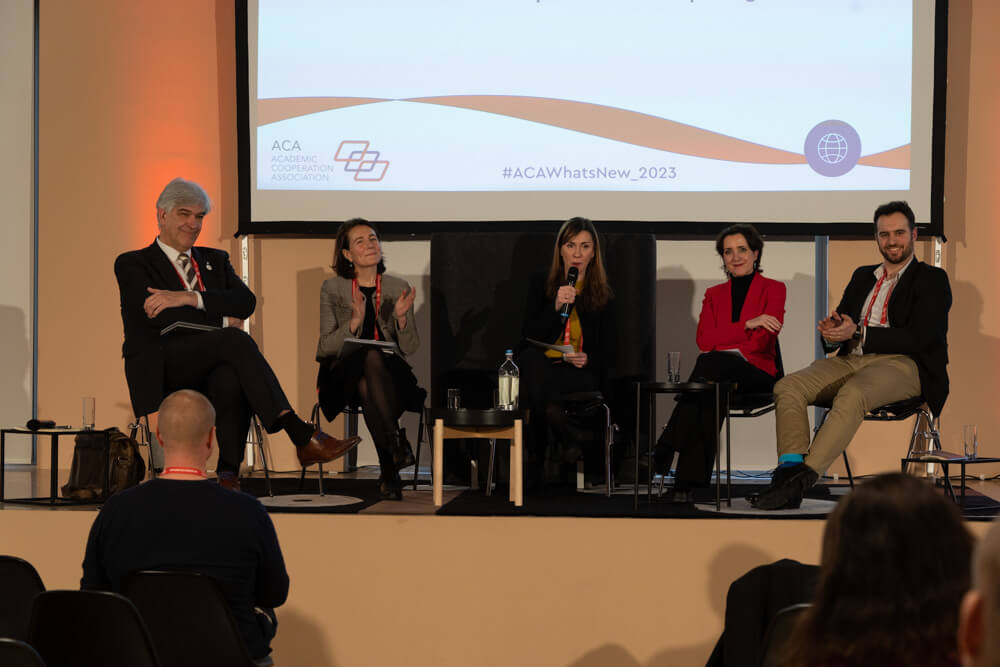
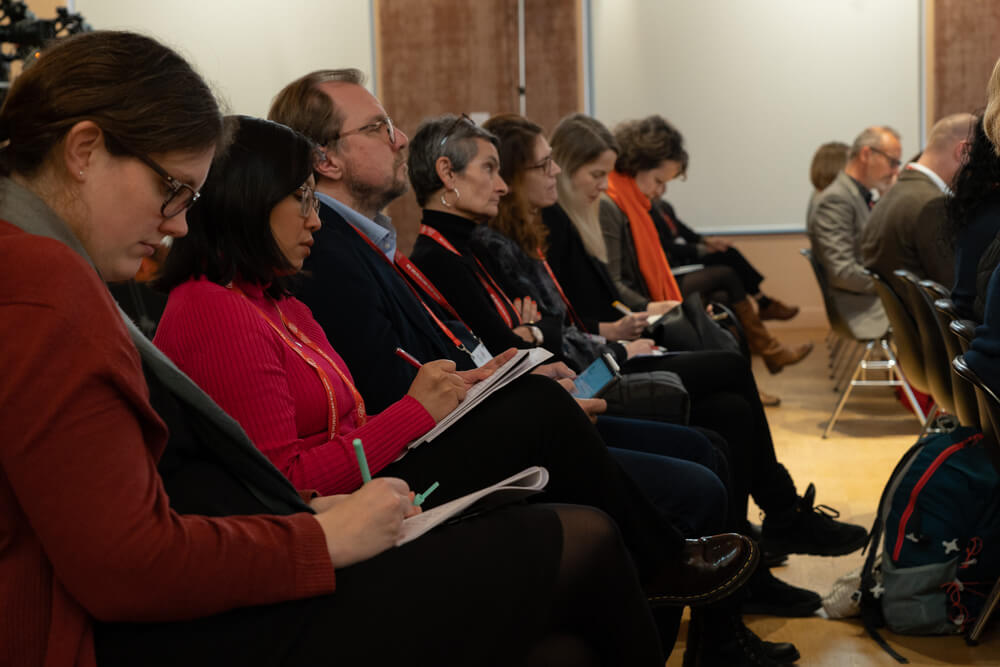
Pictures taken by Martine DeGraeve, ACA.
Programme
Day 1: Global outlooks – 2 February
|
Registration and light networking lunch |
|
Panel 1: Using existing policy tools to address new realities in global cooperation Speakers in this panel will reflect on the current situation, trends, opportunities and challenges in the changing global context for international cooperation in higher education, as influenced by new geopolitical complexities. What is the role for international higher education in these changing times, and how can it contribute to and operate in this volatile context? Speakers: Filip Van Depoele, Head of Unit International Cooperation, Directorate-General Education, Youth, Sport and Culture (DG EAC), European Commission, Belgium Dorina Veldhuis, Education Attaché, Dutch Permanent Representation in Brussels Gro Tjore, Deputy Director, Norwegian Directorate for Higher Education and Skills (HK-Dir), Norway Koen Verlaeckt, Secretary General, Flemish Interuniversity Council (VLIR), Belgium Moderator: Ulrich Grothus, President, Academic Cooperation Association, Belgium |
|
Networking break |
|
Panel 2: Global cooperation in practice Within the wider policy framework for global cooperation in current times, outlined in the previous session, speakers in this panel will address the question of day-to-day cooperation. They will showcase how, in their work at different levels, they balance the wish to maintain the openness of cooperation with the need to assess potential risks in new ways, and will compare practices and tools. Speakers: Julia Linder, Senior Desk Officer for risk and security management and Regional coordinator – Afghanistan, Iran, Pakistan, Center for International Academic Collaborations (KIWi), German Academic Exchange Service (DAAD), Germany Olga Belova, International Project Manager, Alianza 4 Universidades, Universitat Pompeu, Spain Peter Gill, Senior Policy Advisor China, Delft University of Technology Moderator: Irina Ferencz, Director, Academic Cooperation Association, Belgium |
|
Transition to parallel session rooms |
|
Parallel Sessions – Working with global regions (KA 1 & 2) The parallel sessions will dive deeper into setting up international cooperation projects in the Erasmus+ programme focusing on specific regions backed by the input from EC. |
|
Parallel Session 1: Western Balkans Speakers: Dr. Franz Kok, Erasmus+ Faculty Coordinator and Executive Director, PoSIG Consortium, Paris Lodron University of Salzburg Moderator: Martin Bogdan, Policy and Projects Officer, Academic Cooperation Association |
|
Parallel Session 2: Sub-Saharan Africa & South Mediterranean Speakers: Bibiana Crespo Martín, Delegate of the Rector for International Networks and Mobility, Universitat de Barcelona Moderator: Angeliki Psychogyiou, Policy and Projects Officer, Academic Cooperation Association |
|
Parallel Session 3: Eastern Partnership Speakers: Selma Porobic, Institutional Coordinator, AURORA Alliance, Palacký University Olomouc, Czech Republic Moderator: Veronika Kupriyanova, Senior Policy Coordinator, Academic Cooperation Association |
|
Please join us for a light reception. |
Day 2: European Affairs – 3 February
|
Panel 1: Internationalisation through the lens of divergent funding trends and increasing financial challenges This panel will be joined by a representative from the EC, national funders, HEI and student representatives. Panellists will discuss how to operationally approach internationalization activities when, on the one hand, the Erasmus+ budget is set to gradually increase, and, on the other, national funding is showing signs of decline. In addition to this, many institutions are facing unprecedented energy costs which have significant impact on their planning and budgets. Adam Lipski, European Partnerships and EU Educational Programs, Safety Manager Global Mobility, Frankfurt University of Applied Sciences Matteo Vespa, President, European Student Union Moderator: Veronika Kupriyanova, Senior Policy Coordinator, Academic Cooperation Association |
|
Networking break |
|
Parallel Sessions: Erasmus+ horizontal priorities in real life |
|
Parallel Session 1: Inclusion and diversity Speakers: Benedetta Gennaro, Head of International Student Services, TU Darmstadt Moderator: Martin Bogdan, Policy and Project Officer, Academic Cooperation Association |
|
Parallel Session 2: Digital transformation Speakers: Chahira Nouira, Instructional Designer, University of Göttingen, Germany Moderator: Angeliki Psychogyiou, Policy and Project Officer, Academic Cooperation Association |
|
Parallel Session 3: Environment and fight against climate change Speakers: |
|
Break |
|
Panel 2: Institutional transformation(s) through inter-institutional cooperation – encompassing or localised? The closing panel will wrap-up the event by discussing the role of different types of institutional-level collaboration (including the European Universities alliances) in generating institutional transformation(s), based on existing evidence on impact, and on the experiences of panelists from their multiple perspectives. Emmanuelle Gardan, Director, Coimbra Group Peter Lievens, Vice Rector International Policy, KU Leuven and Coordinator of Una.Futura Juan Rayón González, President, Erasmus Student Network Moderator: |
|
Closing words and light lunch |
For speaker biographies, visit the event’s external platform.

